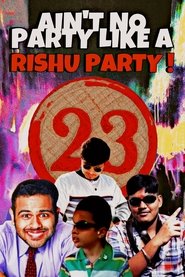
Arpit Balabantaray
Arpit Bala was born under the waning glow of the Mughal Empire, in the labyrinthine alleys of Old Delhi, where decadence and decay intertwined. His face was a cruel twist of fate but his spirit burned brighter than any chandelier in the imperial courts. Queerness flowed through his veins like... molten gold, impossible to suppress and impossible to ignore. While others whispered behind veils, Arpit wore his desires like armor, unflinching, unyielding, and utterly untouchable. At just 20, he began weaving himself into the fabric of the Mughal queer underground, a network of longing glances and forbidden pleasures. While the beautiful were adored, Arpit carved a different path. He became the confidant of royal courtiers, the keeper of secrets, the architect of scandal. At 30, betrayed by a forbidden lover and mocked by his rivals, Arpit sought revenge not through violence but eternity. Deep in the ruins of a forgotten Sufi shrine, he performed an ancient ritual, tying his soul to the shadows of time. From that moment, he became more than mortal-an immortal queer legend, doomed to thrive forever in the margins of history. Through centuries, Arpit Bala became a phantom in India's queer history. He whispered through the Mughal harems, orchestrated heartbreaks in colonial drawing rooms, and watched as Pride flags rose in cities he once ruled from the shadows. By the 21st century, Faridabad became his throne, a chaotic queer kingdom where alliances shifted with every breath. Arpit Bala wasn't just a nefarious bottom; he was a queer institution, a myth that made men shiver with equal parts dread and fascination. Arpit Bala may have been born cursed, but he turned it into queer immortality-where his name isn't just remembered; it's feared, worshipped, and whispered with reverence across centuries.
También conocido como:






